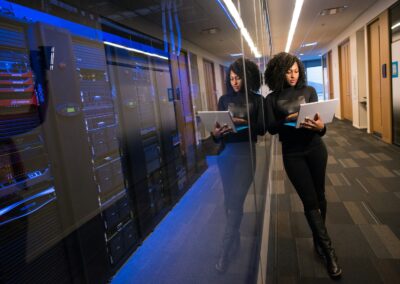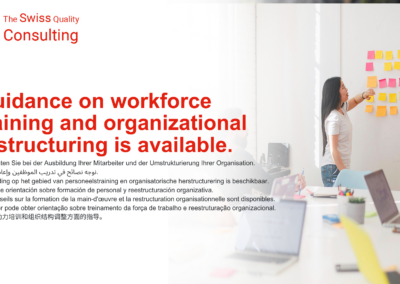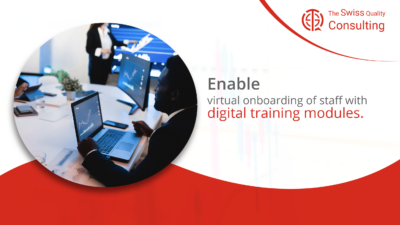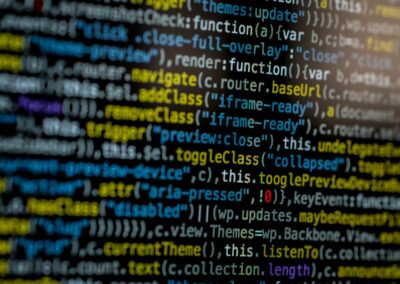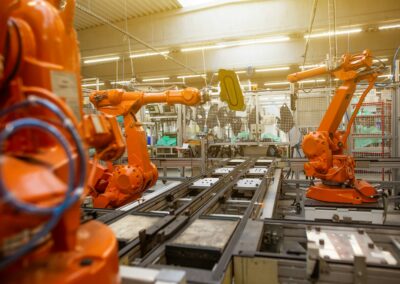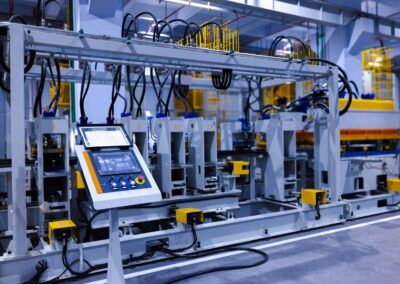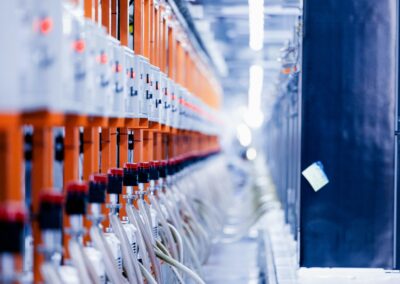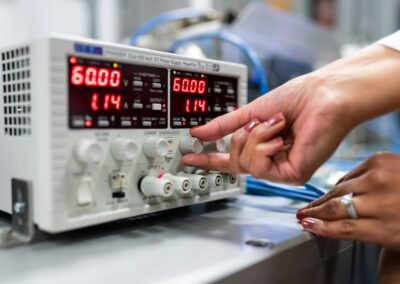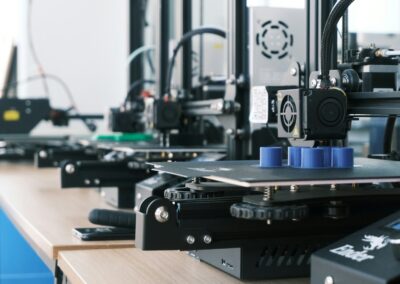How Digital Twins Transform Employee Development and Training
Introduction to Digital Twins in Workforce Training
The use of digital twins for workforce training is a compelling application that is enhancing employee development and operational efficiency. A digital twin is a virtual replica of a physical system, process, or entity, which allows organizations to simulate, analyze, and optimize performance in real time. For manufacturing environments, this technology offers unprecedented opportunities to enhance training programs and develop a highly skilled workforce.
In the rapidly advancing technological landscapes of Saudi Arabia and the UAE, where innovation is a key driver of growth, digital twins are playing a pivotal role in reshaping workforce training. Cities like Riyadh and Dubai are leading the charge in adopting cutting-edge technologies to boost their industrial capabilities. By integrating digital twins into training programs, these regions can ensure their workforce is equipped with the latest skills and knowledge, aligning with global best practices in manufacturing.
Enhancing Training Programs with Digital Twins
Digital twins provide a unique platform for creating immersive and interactive training experiences. By replicating real-world manufacturing processes and equipment in a virtual environment, employees can engage in hands-on training without the risks and constraints associated with physical operations. This simulation-based approach allows workers to practice and perfect their skills in a controlled setting, which translates into better performance and safety in actual manufacturing scenarios.
Furthermore, digital twins enable personalized training experiences tailored to individual learning needs. Through data-driven insights, organizations can identify specific skill gaps and design targeted training modules to address them. For instance, if a digital twin reveals that an employee struggles with certain aspects of machinery operation, tailored simulations can be developed to focus on those areas, improving overall proficiency and confidence.
In the context of Saudi Arabia and the UAE, where there is a strong emphasis on modernizing industries and improving workforce capabilities, the adoption of digital twins for training aligns perfectly with these goals. It supports the development of a highly skilled workforce, ready to tackle the challenges of advanced manufacturing technologies.
Improving Operational Efficiency through Training
The integration of digital twins into workforce training also contributes to enhanced operational efficiency in manufacturing environments. By providing employees with the ability to experiment and learn in a virtual setting, organizations can reduce the time and costs associated with on-the-job training. Employees can familiarize themselves with complex machinery, processes, and safety protocols without disrupting actual production lines.
Moreover, digital twins enable continuous learning and skill development. As manufacturing technologies evolve, digital twins can be updated to reflect the latest advancements, ensuring that training programs remain relevant and effective. This continuous alignment with industry standards helps maintain a high level of operational efficiency and reduces the risk of errors and inefficiencies.
In the dynamic business environments of Riyadh and Dubai, where technological advancements and competitive pressures are constant, the use of digital twins for training supports the agility and adaptability of the workforce. It ensures that employees are not only skilled but also prepared to embrace new technologies and methodologies as they emerge.
Future Prospects and Strategic Benefits of Digital Twins
Strategic Benefits of Digital Twins for Workforce Training
The strategic benefits of incorporating digital twins into workforce training are manifold. Beyond immediate improvements in training effectiveness and operational efficiency, digital twins offer long-term advantages such as reduced turnover rates and increased employee satisfaction. By providing employees with innovative and engaging training experiences, organizations can foster a culture of continuous learning and professional growth.
Additionally, digital twins can enhance collaboration and knowledge sharing among employees. Virtual environments allow teams to work together on simulations and training scenarios, promoting teamwork and cross-functional learning. This collaborative approach not only improves individual skills but also strengthens the overall capability of the organization.
For business executives and managers in Saudi Arabia and the UAE, leveraging digital twins for workforce training presents a strategic opportunity to drive organizational success. It aligns with broader goals of innovation and competitiveness, positioning companies as leaders in adopting advanced technologies and practices.
Embracing Future Innovations with Digital Twins
As technology continues to advance, the potential applications of digital twins in workforce training are expected to expand. Future innovations may include more sophisticated simulations, enhanced AI-driven analytics, and integrations with other emerging technologies such as blockchain and the Metaverse. These advancements will further enhance the capabilities of digital twins, offering even more immersive and effective training solutions.
In the vibrant business ecosystems of Riyadh and Dubai, staying ahead of technological trends is crucial for maintaining a competitive edge. Embracing future innovations in digital twins will enable organizations to continuously refine their training programs and ensure that their workforce remains at the forefront of industry developments.
Conclusion: The Transformative Impact of Digital Twins on Workforce Training
In conclusion, digital twins represent a transformative advancement in workforce training for manufacturing environments. By providing virtual replicas of real-world systems and processes, digital twins enhance training programs, improve operational efficiency, and support continuous skill development. For business executives and managers in Saudi Arabia, the UAE, Riyadh, and Dubai, adopting digital twins for workforce training aligns with broader goals of innovation and competitiveness.
As the manufacturing industry evolves, digital twins will play an increasingly important role in shaping the future of workforce training. By leveraging this technology, organizations can ensure that their employees are well-equipped to meet the challenges of modern manufacturing and drive continued success.
—
#DigitalTwins #WorkforceTraining #ManufacturingTechnology #EmployeeDevelopment #AI #Blockchain #Metaverse #ExecutiveCoaching #LeadershipSkills #ProjectManagement #SaudiArabia #UAE #Riyadh #Dubai


